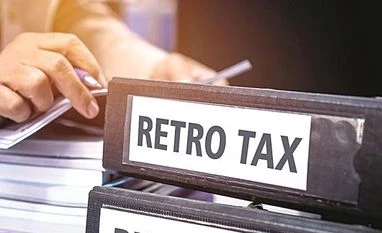Experts say the draft rules put up by the income tax department offers a win-win situation for the government and companies such as Cairn and Vodafone to settle their disputes arising from retrospective taxation.
However, enforcement of investment treaty awards remains ambiguous in India, prompting these companies to seek alternative routes to do so like approaching international arbitral panels or courts in other jurisdictions to seize assets of the country.
"The government has offered a win-win solution to this prolonged litigation. It is a balanced approach of the government offering a resolution to the taxpayer to end litigation," said Rakesh Nangia, managing partner, Nangia Anderson LLP.
The income tax department on Saturday released the much-awaited draft rules for the legislation relating to the withdrawal of retrospective amendment in taxation concerning entities in lieu of irrevocable withdrawal of all legal cases against the government.
Mukesh Butani, managing partner, BMR Legal, said, the draft guidance is in line with the 2021 amendment Bill to offer a settlement of 17 cases covered under the indirect transfer provisions and effected due to retrospectivity.
"A simple procedure has been prescribed by which the jurisdictional commissioner based on satisfaction of conditions for eligibility and undertaking to withdraw all cases grant approval in a time-bound 15 days," he said.
The government passed the Taxation Laws (Amendment) Act 2021 in Parliament earlier this month offering a settlement of the retrospective cases relating to the 2012 legislation on the offshore indirect transfer of Indian assets.
The draft rules released by the Central Board of Direct Taxes (CBDT) call for a declaration by the companies to “irrevocably withdraw, discontinue and not pursue” any legal proceedings. These include proceedings before the appellate forum, proceedings for arbitration, conciliation, or mediation, and for enforcing or pursuing attachments in respect of any award, order, or judgement.
However, the draft rules also require a similar undertaking from the shareholders and other interested parties as well in support of the withdrawal of cases, said Amit Singhania, partner at Shardul Amarchand Mangaldas.
Nangia said an important consideration for such companies is that the mechanism of enforcement of investment treaty awards in India remains ambiguous. "The courts in India seem more in favour of non-enforceability, thereby compelling investors to take alternative routes such as seeking enforcement in other jurisdictions or holding of Indian assets located abroad which in itself is extremely difficult considering the sovereign immunities that prevent recovery through such actions," he said.
He said India has always maintained that taxation is a sovereign right, which is strengthened by the fact that India has terminated most of its bilateral investment treaties (BITs) after multiple investment arbitration downfalls. It has tried to devolve a new model BIT wherein matters such as taxation have been excluded, he said.
"In this scenario, considering all parameters, the litigants may choose to opt for the new statutory approach, putting an end to the prolonged litigation to spare time, effort and resources," Nangia opined.
Sandeep Jhunjhunwala, partner, Nangia Andersen LLP said that interestingly, any dispute with respect to any of the prescribed forms or orders under these rules would be governed by the Indian laws and Indian courts would have the exclusive jurisdiction to decide disputes.
The CBDT has sought comments on the draft notification by September 4.
"The aim of the amendment made by the 2021 Act is to bring tax certainty and ensure that once specified conditions are fulfilled, the pending income-tax proceedings shall be withdrawn, demand, if any, raised shall be nullified, and amount, if any, collected shall be refunded to the taxpayer without any interest," the income tax department said in a press statement on Saturday.
To implement the amendment made by the 2021 Act, draft rules have been prepared to amend the income-tax Rules, 1962 which specify the conditions to be fulfilled and the process to be followed to give effect to the amendment made by the 2021 Act, it added.
The government has collected Rs 8,000 odd crore from three of the 17 companies — Rs 7,900 crore from Cairn Energy, Rs 44.7 crore from Vodafone, and Rs 48 crore to WNS Capital — which it has proposed to refund under the new legislation if these companies fulfil certain conditions.
These include withdrawal of pending litigation and furnishing of an undertaking to the effect that no claim for cost, damages, interest, etc., would be filed. The amount paid/collected in these cases shall be refunded, without any interest, on fulfilment of the said conditions. The amendment made by the 2021 Act provides that the demand raised for offshore indirect transfer of Indian assets made before 28th May 2012 (including the validation of demand provided under Section 119 of the Finance Act 2012) shall be nullified on fulfilment of the specified conditions.
Unlock 30+ premium stories daily hand-picked by our editors, across devices on browser and app.
Pick your 5 favourite companies, get a daily email with all news updates on them.
Full access to our intuitive epaper - clip, save, share articles from any device; newspaper archives from 2006.
Preferential invites to Business Standard events.
Curated newsletters on markets, personal finance, policy & politics, start-ups, technology, and more.
)